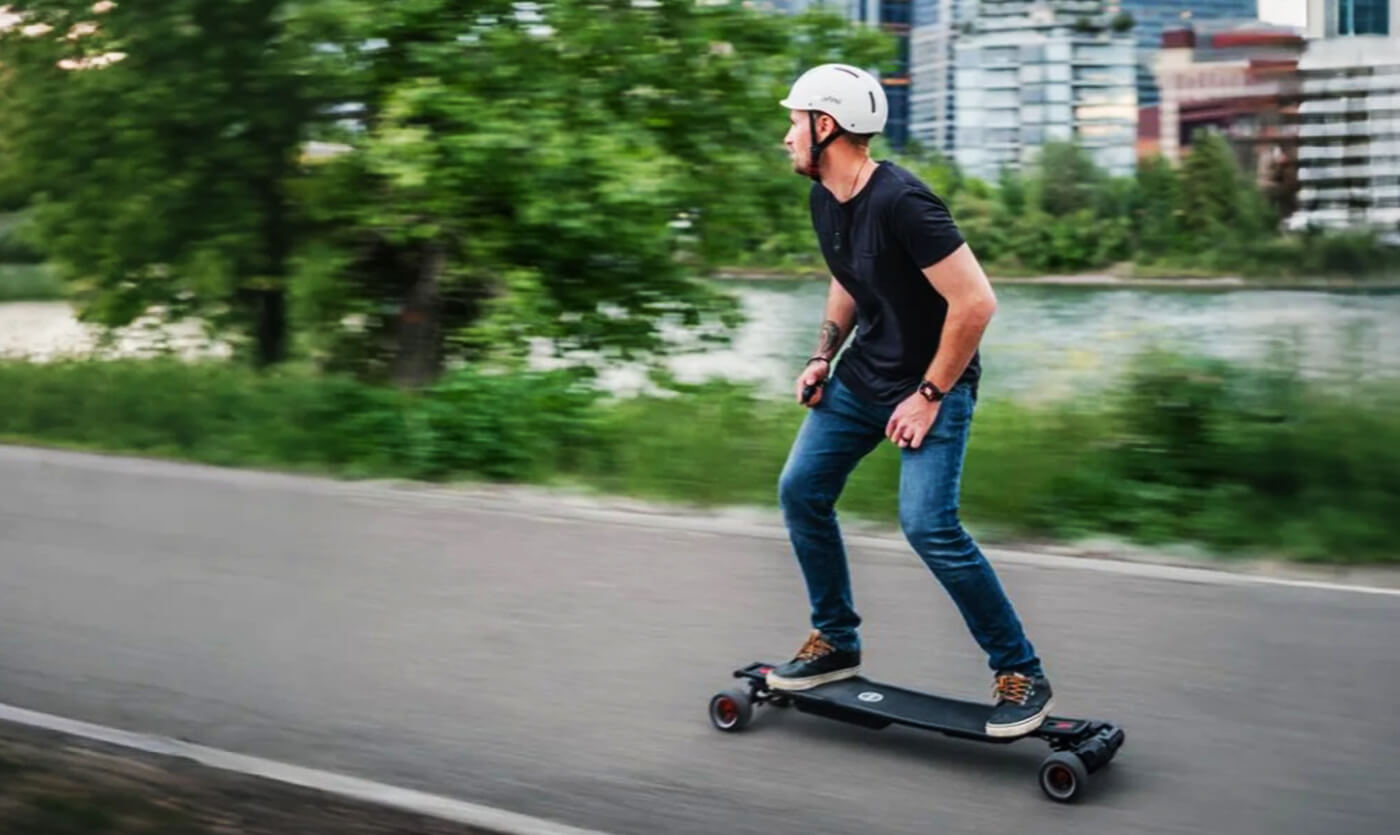Are you considering riding an electric skateboard but are unsure if it’s legal in your area? You’re not alone! Legal regulations surrounding electric skateboards vary greatly depending on where you live. This guide will break down everything you need to know to confidently and safely ride your electric skateboard, without worrying about fines or impoundment.

1. Understanding Electric Skateboard Legality
Device Classification: What Is an Electric Skateboard?
Before you ride, it’s crucial to know how your electric skateboard is classified in your area. Whether your board is considered a “motor vehicle,” “electric bicycle,” or “personal mobility device” will determine which laws apply.
-
Motor Vehicle vs. Personal Mobility Device: Some cities treat electric skateboards as motor vehicles, subject to road regulations, while others may classify them as personal mobility devices or electric bicycles. This could impact your access to bike lanes, sidewalks, or public roads.
Quick Tip: Check with your local government or DMV website to confirm your area’s classification of electric skateboards.
If you’re still choosing a deck, check out Maxfind’s lineup of high-performance electric skateboards to match your area’s speed and power limits.
2. Where Can You Legally Ride an Electric Skateboard?
Knowing where you can legally ride is essential to avoid fines or accidents. Depending on your location, electric skateboards may be allowed on bike lanes, sidewalks, or only private property.
Public Roads, Bike Lanes, Sidewalks: What's Allowed?
-
Bike Lanes: In many areas, electric skateboards are allowed in bike lanes. However, make sure to check the speed limits as some places impose restrictions.
-
Sidewalks: In some cities, riding on sidewalks is prohibited, while others allow it under specific conditions.
-
Private Property: The safest bet is riding on private property (with the owner's permission) if you're unsure about public areas.
Pro Tip: Visit official government websites or use an interactive map tool to check your city’s rules on where electric skateboards are allowed. You can find relevant ordinances and bylaws on local transport websites.
3. Speed & Power Limits for Electric Skateboards
Electric skateboards come with different power ratings and maximum speeds, which can influence their legal status in your area.
What Are the Speed and Power Restrictions?
-
Speed Limits: Many cities set a maximum speed of 20 mph (32 km/h) for electric skateboards. Going over this speed might place your board in a higher legal category, requiring more regulations.
-
Motor Power: Most areas set the power limit at around 750W (watts). Exceeding this could mean needing a license, registration, or other legal measures.
Quick Check: Review your local speed and power limits to ensure your board complies. If you exceed the local limits, consider adjusting your riding habits or choosing a different board.

Related Reading: How Fast Can an Electric Skateboard Go? Riding Maximum Speed?
4. Age, Licensing, and Registration Requirements
Depending on where you live, you might need a specific age, driver’s license, or board registration to legally ride.
Do You Need a Driver’s License or Registration?
-
Age Requirements: Many areas require riders to be at least 16 years old to operate an electric skateboard.
-
Driver’s License: Some regions require a learner’s permit or full driver’s license for road use.
-
Registration & Insurance: If you plan to ride on public roads, you may need to register your skateboard or have insurance.
Solution: Verify the minimum age and licensing requirements for your area. If registration is required, make sure you take care of it before hitting the road.
5. Safety Gear and Equipment: What’s Required?
Many places have safety regulations for electric skateboards, including helmet laws, reflectors, and lights.
What Gear Do You Need to Ride Legally?
-
Helmet Laws: Wearing a helmet is often required, especially for riders under 18.
-
Lights & Reflectors: Some jurisdictions require lights and reflectors when riding after dark, while others may have specific brightness requirements.
-
Additional Equipment: Other safety gear like high-visibility vests or audible warning devices may be required in some areas.
Tip: Always wear your helmet and check local laws about lighting and visibility. You can find these details by searching your area’s vehicle code or traffic laws online.
6. Insurance and Liability: Are You Covered?
Understanding your insurance coverage is crucial. Many riders assume their regular insurance policy covers them in the event of an accident, but that might not be the case.
Will Your Insurance Cover You?
-
Homeowner’s Insurance: Some homeowner’s insurance policies cover injuries or property damage from electric skateboard use, but it’s not guaranteed.
-
Specialized Coverage: You may need additional coverage, especially if you're riding on public roads.
Tip: Contact your insurance provider to confirm whether your current policy covers accidents involving your electric skateboard. If it doesn’t, look into micromobility insurance.
Related Recommendations: Is It Worth Getting An Electric Skateboard?

7. What Are the Penalties for Non-Compliance?
Failing to comply with local electric skateboard laws could lead to fines, impoundment, or worse. Knowing the penalties ahead of time can help you avoid costly mistakes.
What Are the Risks of Getting Caught?
-
Fines: Penalties can range from small fines of $25 to larger ones up to $500 or more, depending on the violation.
-
Impoundment: In extreme cases, authorities may seize your board if you're caught riding illegally.
-
Criminal Charges: Some regions may even impose misdemeanor charges in serious cases.
Solution: Familiarize yourself with local penalties for non-compliance. Avoid risky behavior like speeding, riding without safety gear, or ignoring local restrictions.
8. How to Stay Up to Date with Local Electric Skateboard Laws
Laws are constantly changing, so it’s essential to stay informed about the latest updates in your area.
Stay Informed with Local Updates
-
Official Websites: Check local government or DMV websites regularly for updated rules and regulations.
-
Sign Up for Alerts: Many cities provide email updates or RSS feeds about changes in traffic laws or personal mobility regulations.
-
Join Local Communities: Engage with electric skateboard riders in your area for the latest news and enforcement updates.
Tip: Use government websites for the most accurate and up-to-date legal information. Consider subscribing to email alerts to stay ahead of any changes.
Conclusion: Ride Safely and Legally
Riding an electric skateboard can be a fun and efficient way to get around, but it’s important to know the local laws and regulations to ensure you're riding legally and safely. By checking device classifications, understanding where you can ride, and following safety gear and insurance guidelines, you’ll be able to enjoy your ride without the risk of fines or impoundment.
Final Tip: Always check your local rules before hitting the road. If you’re unsure, ask local authorities or consult community forums for guidance.





Share:
What to Wear for Electric Skateboarding?
What To Look For When Buying A Good Skateboard?